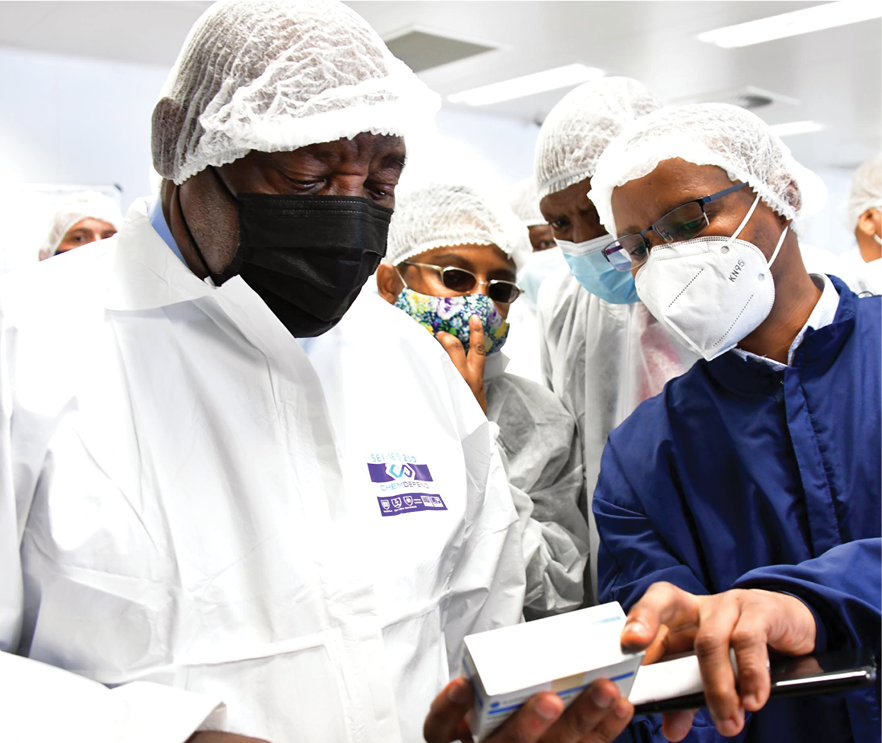Vaccination programme rolls on
Vaccination programme rolls on SiboneloSouth Africa’s Coronavirus Disease (COVID-19) vaccination programme is making good progress, with the second phase expected to start soon.
During a recent address to the nation, President Cyril Ramaphosa said Phase 2 of the programme is scheduled to start in mid-May, with registration expected to take place in April.
“Under Phase 2, we hope to vaccinate more of our people over six months,” said the President.
In line with international best practice, in Phase 2 government will prioritise those at the highest risk of hospitalisation and death, such as people over 60 and people living with co-morbidities.
“To ensure that we have supporting infrastructure over 2 000 vaccination sites have been identified across the country.
“These include general practitioners’ rooms, community clinics and pharmacies, retail outlets and in some instances, larger facilities like stadiums and conference centres,” he said.
Electronic Vaccination Data System
Government has established an Electronic Vaccination Data System to manage the vaccine rollout and direct people towards vaccination sites closest to where they live.
“This system will allow you to register, receive an appointment date and site, and receive a digital certificate or a hard copy confirming your vaccination status once vaccinated.
“Everyone that will be vaccinated will have to be registered on the system first, and you will be invited to register once you become eligible,” the President said.
Government will work with provincial and district structures and community-based organisations to register those citizens who do not have access to technology.
“We are developing mechanisms to identify and register undocumented persons so that they too can be vaccinated.
“We remain committed to keeping the nation informed on every step in the vaccine rollout process,” he said.
The country began its vaccination programme mid-February with Phase 1 focusing on inoculating health workers.
“This phase is on track to be completed within three months. More than 250 000 health workers have to date received the Johnson & Johnson (J&J) vaccine as part of the Sisonke trial,” said the President.
Various vaccines
The country has secured 11 million doses of the J&J vaccine, which is known to be effective against the dominant variants in the country.
“We have secured a further 20 million doses and are finalising the agreement with J&J. We are also finalising an agreement for 20 million doses of the Pfizer vaccine, which requires two doses. Together, this supply of vaccines will provide us with enough doses to vaccinate 41 million people,” said President Ramaphosa.
Further announcements will be made once negotiations are finalised.
“We are also in various stages of negotiations with the manufacturers of other vaccines such as Sinovac, Sinopharm and Sputnik V. Some of these manufacturers are in the final stages of the approval process for use of the vaccines in South Africa,” he said.
Government is also expected to receive its allocation of vaccine doses directly through its agreements with manufacturers from the African Union initiative.
Although there have been delays in securing vaccine supplies, the President said government is still confident of achieving its vaccination targets.
“We believe that sufficient volumes from manufacturers will be arriving in the quantities as agreed in terms of our agreements with them.”
Virus still with us
Despite the progress in the vaccination programme, President Ramaphosa cautioned that South Africans must behave responsibly as the virus it still with us.
“We must act with caution © in the days, weeks and months ahead. We do not know when the Coronavirus pandemic will be behind us, but we all know what must be done.”
He reminded South Africans that wearing a mask in public at all times, regularly washing or sanitising our hands, observing social distancing and avoiding crowds are still the most effective way of keeping the virus at bay.